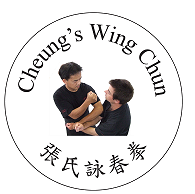I came to the UK as a teenager, not knowing the language and very much a fish out of water. This move was a personal struggle at first requiring effort and perseverance. However, life is funny: what starts off as easy generally becomes difficult and what began as a difficult task; usually becomes easy with time. For me, Wing Chun was no different: difficult and strange at first, but with perseverance, there will come a time when it will become a part of you. My start in Wing Chun was inadequate but not uncommon – I started learning what I could from existing literature (both in English and in Chinese) and from training and visiting local clubs of questionable quality. (Wing Chun information in Chinese was even rarer still as tradition dictated Wing Chun should be taught by word of mouth, down jealousy-guarded lineages). It wasn’t until I found my Sifu’s class did my Wing Chun begin to blossom – but more on that later. I quickly grasped the basic theory of Wing Chun and through my training as a qualified driving instructor, a fencing instructor and having dabbled in flying a Cessna, coordination of body and mind seem natural. But, I was still conflicted by the inconsistency of the information I was coming across.
My research found the quality of the translated books (expanded later on through the Internet) were generally self- promoting propaganda, disrespectful of other styles and full of choreographed examples (e.g. “if someone does this, do this”) . But it was all I had. So, for years, I tried to learn Wing Chun in this fashion as best I could. No doubt I picked up endless bad habits, incorrect information and a false sense of confidence in my own ability. That was set to change. My Wing Chun breakthrough came about when I began training with Master (Sifu) Kwok in 2002. Sifu Kwok had immigrated from Hong Kong. He was and still is a student of Grand Master Ip Chun. It was Sifu Kwok who helped me to unravel the bad habits learnt in those early years. His teaching also reinforced personally my thoughts that there is more to the art than monotonously performing set pieces and worse of all to dilute the art through laziness. Namely, Wing Chun is not the most “natural” martial art to learn in the beginning. It does not have the flamboyant roundhouse kicks or rigid punches of “hard styles”. Faced with this, many beginner practitioners rather than persevere and learn the effective principles of Wing Chun, sought short-cuts by mixing Wing Chun with other styles without a proper understanding of either.
It was with Sifu Kwok that I have grown to become a Sifu myself in 2005. In my own classes I often encountered students who had some Wing Chun experience yet when put to the test their skills were flawed and plagued with bad habits. I’ve known a vast number of people who left, never return to the art of Wing Chun, having discovered that their learning years, effort and money had been mis-directed. I was fortunate in this respect in seeking the proper path early on and with someone who really knows and loves the art (Bad habits in Wing Chun are notoriously hard to overcome)!
There is a saying in a Chinese proverb – ‘ Half from the Sifu, Half from You ‘ ! This means even with the best Sifu who can pass on his/her skills effectively; it is still meaningless and useless if the practitioner don’t practice at all!
I do firmly believed this. After all, whatever the students learned from me, the skills should stay with them for the rest of their lives and no can can take that away from you (unless you got amnesia) !
